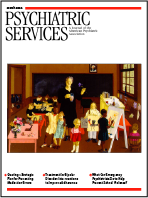There is a myth that people with developmental disabilities are not sexual. Ethical Dilemmas: Sexuality and Developmental Disabilities dispels this myth by clearly delivering three vital messages: people with developmental disabilities are sexual beings and have the right to be sexual; sex and sexuality are positive aspects of all people's lives; and it is our responsibility and duty as professionals to provide persons who have developmental disabilities with support and information about sexuality. These messages, along with the overview of issues that can and will arise when sexuality is addressed among people with developmental disabilities, make Ethical Dilemmas an invaluable resource.
The topics addressed in this book were determined by a survey of professionals who work directly with people who have developmental disabilities, which was followed by a conference to discuss the selected topics. The authors found that professionals made daily decisions having to do with sexuality, yet they did not have much guidance or understanding of the relevant issues in order to make these decisions. The purpose of the book, therefore, is to inform professionals of the myriad ethical dilemmas that appear when approaching this topic and how to work through these dilemmas in the best interest of the people they work with. In addition, the book will hopefully inspire further research and focus on this underserved population.
Topics addressed include developing agency policies on sexual behavior, consent in sexual relations, sexuality education, prevention of sexual abuse, parents who have intellectual disabilities, inappropriate sexual behaviors, working with sexual offenders, and sexual offense and the legal system. Two chapters in particular highlight what are perhaps the most important ideas around sexuality and developmental disabilities: the chapter on sexual policies in agencies that support persons with developmental disabilities, and the chapter on sexuality education. Using scenarios, the authors demonstrate the need for up-to-date, sex-positive, and inclusive agency policies surrounding behavior.
In one scenario, a staff person in an agency that has long ignored sexuality issues abuses a man who has a developmental disability. Because there was never any discussion about appropriate touch, the man with the developmental disability had no idea that this touch was abusive, and no procedures were in place for reporting the abuse and supporting him. In addition to recommending issues that agencies should think about, this chapter also highlights the challenges agencies face when creating policies and procedures to support individuals as sexual beings, as well as the staff who serve them.
The chapter on sexuality education emphasizes the importance of providing education to people with developmental disabilities so that they can have sexually healthy lives, particularly from an abuse-prevention standpoint. This chapter clearly delineates the topics that need to be covered in discussions of sexuality as well as strategies to help people with developmental disabilities understand important points about sexuality.
Ethical Dilemmas is full of information and recommendations. Although the book is not specifically written for mental health care workers, it offers an in-depth look at the issues and will be helpful for anyone who works with people who have developmental disabilities.

